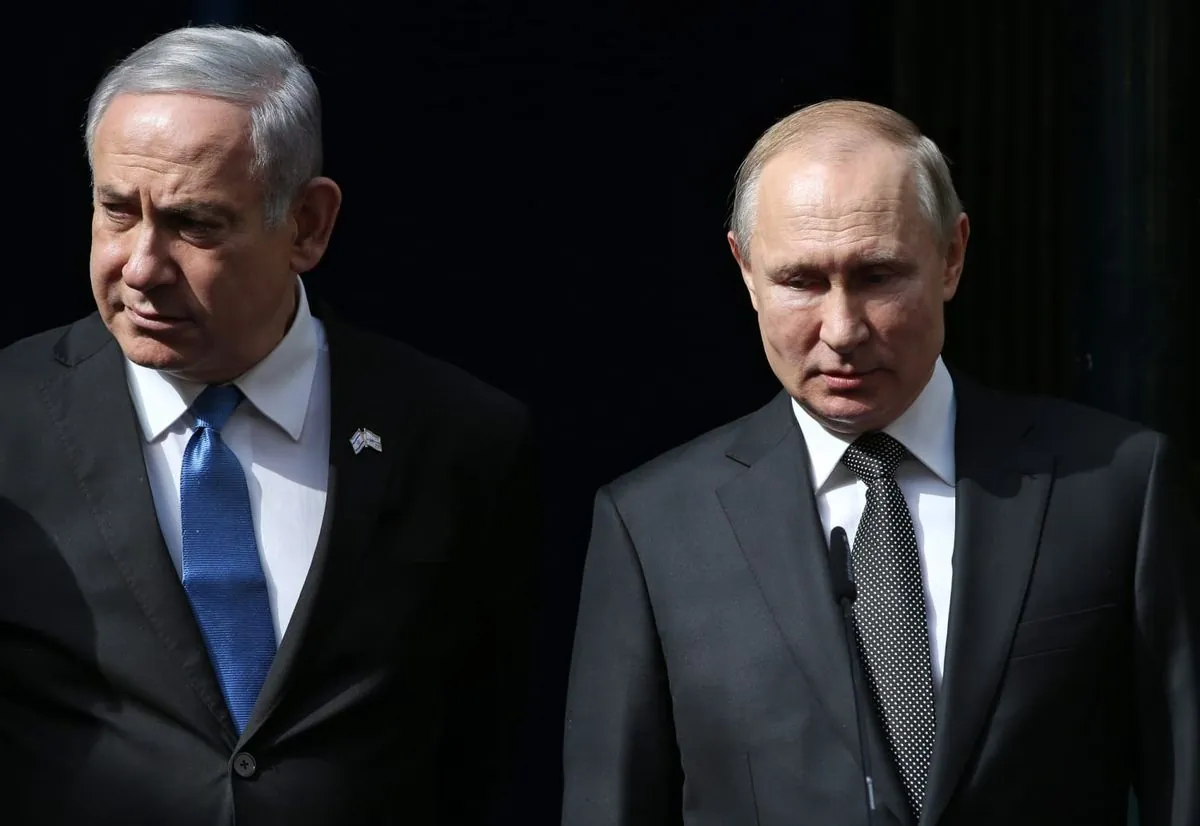Recent reports from Russian media suggest that Benjamin Netanyahu may have attempted to leverage Vladimir Putin's influence to deter Iran from launching a missile attack on Israel. This alleged diplomatic maneuver underscores the complex and evolving nature of international relations in the wake of ongoing conflicts in Ukraine and the Middle East.
According to Russian news agencies, Netanyahu reportedly sought to communicate with Putin on the afternoon of April 9, 2024, mere hours before Iran unleashed a barrage of 200 ballistic missiles targeting Israeli cities. The RBK news agency speculated that the purpose of this conversation was to persuade Putin "to put pressure on Iran to prevent an attack." However, the Kremlin has denied that any such conversation took place, while the Israeli government has remained silent on the matter.
This reported last-minute diplomatic effort highlights the significant shifts in global alliances that have occurred in recent years. The Russian invasion of Ukraine in February 2022 and the subsequent conflict in the Middle East have reshaped the geopolitical landscape, fracturing long-standing relationships and forging new ones.
At the center of this new world order is what some observers have dubbed an "Axis of Evil," comprising Russia, Iran, and North Korea, standing in opposition to Ukraine and the Western allies led by the United States. This term, originally coined by U.S. President George W. Bush in 2002, has taken on new significance in the current geopolitical climate.
The relationship between Russia and Israel, once considered friendly, has deteriorated significantly. In 2019, during his re-election campaign, Netanyahu boasted of his close friendship with Putin, even featuring posters of himself with the Russian leader. The two countries had previously collaborated to contain Hezbollah's influence in Lebanon and Syria, particularly after Russia's intervention in the Syrian Civil War in 2015.
However, Russia's invasion of Ukraine in 2022 forced many countries to reassess their allegiances. For Israel, this shift has been particularly challenging, as it has had to balance its historic partnership with Russia against its strong ties to the United States, its primary ally and supporter.
The Kremlin, on the other hand, appears to have made a more decisive pivot. Russian sources, speaking through pro-Kremlin Telegram channels, have indicated that the Kremlin has no intention of criticizing Iran for its missile attacks on Israel. An unnamed source stated, "The Kremlin believes that the chain of escalation in the Middle East was started by the Israeli authorities and only they can fix everything."
This stance has not gone unnoticed in Israel. Semoin Goldin, an Israeli historian and researcher in Russian studies at the Hebrew University of Jerusalem, described Putin's failure to condemn the attacks on Israel as a "foul betrayal," adding, "Russia has come down squarely on the side of the aggressor, not at all on our side."
As Russia faces international isolation due to its actions in Ukraine, it has increasingly turned to Iran for support. The two countries have a history of diplomatic cooperation, which has expanded into military collaboration since Russia's intervention in the Syrian conflict. In exchange for weapons, Russia has provided Iran with oil, food, and technical expertise.
Israel, meanwhile, is exploring other potential allies in the region. Azerbaijan, a predominantly Muslim country that borders Iran, has maintained a unique alliance with Israel. This relationship is based on mutual interests, with Azerbaijan supplying oil and gas to Israel in exchange for sophisticated Israeli weapons and intelligence capabilities. These arms played a crucial role in Azerbaijan's conflicts with Armenia over the disputed Nagorno-Karabakh region in 2020 and 2023.
As the geopolitical landscape continues to evolve, Israel faces the challenge of navigating these shifting alliances while ensuring its security in an increasingly volatile region. The reported attempt by Netanyahu to reach out to Putin, whether confirmed or not, serves as a stark reminder of the complex diplomatic maneuvering required in this new global order.
"The aim of the conversation may have been to convince Putin to put pressure on Iran to prevent an attack"
